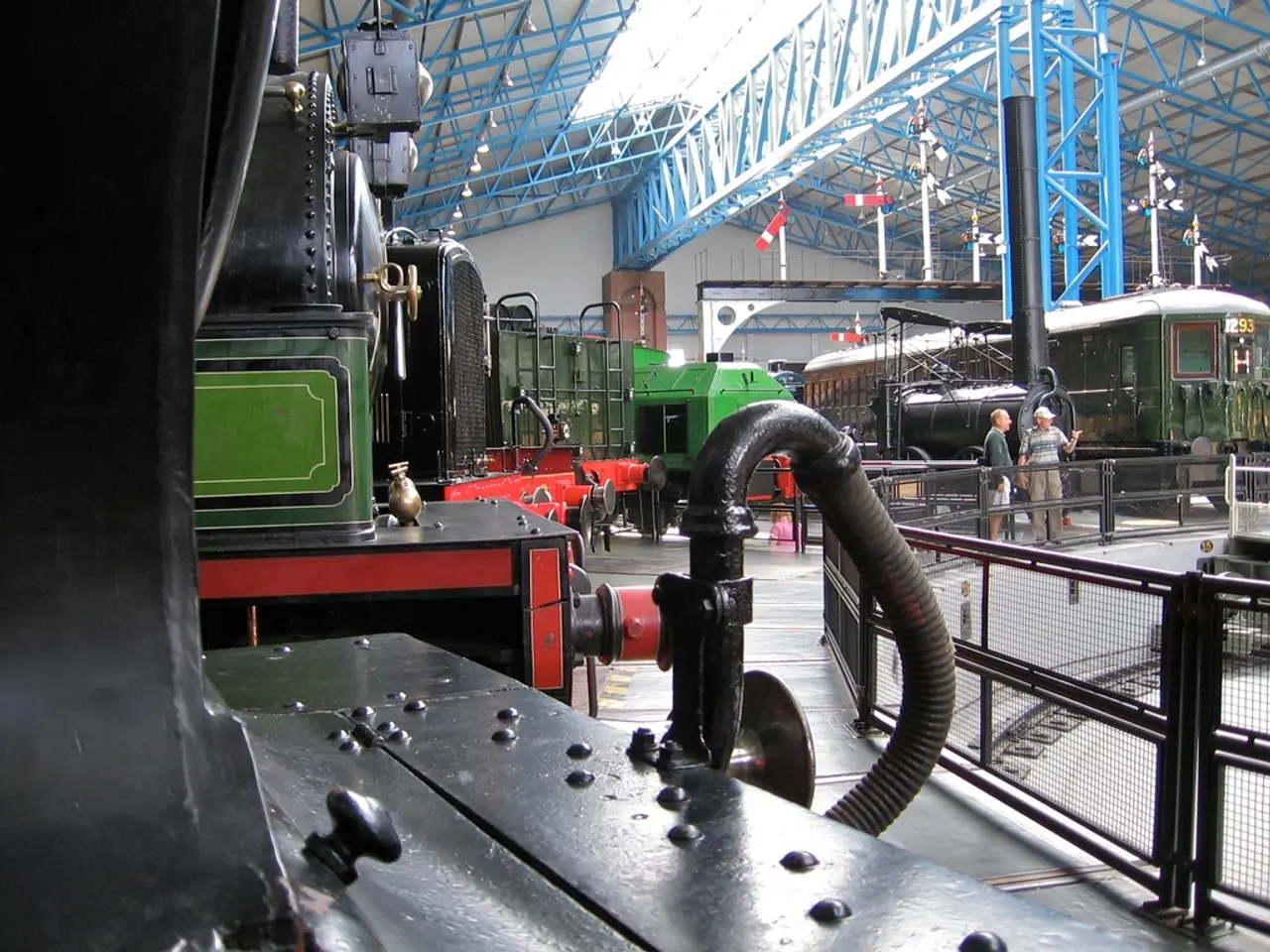Socialist faction advocates for a steel-industry convening
The German steel industry is currently grappling with a profound crisis, marked by global trade tensions, rising energy costs, and the transition towards climate-neutral production. This crisis is particularly evident in the sector's declining employment and production figures.
Crude steel production in Germany has fallen by 12% so far this year, reflecting ongoing sectoral weakness. The number of employees in the steel sector has dropped dramatically, from around 175,000 in 1990 to just over 78,000 today.
The industry faces challenges from cheap steel imports, retaliatory tariffs, and import penetration in the EU reaching up to 30% in 2025 amid depressed demand. These external pressures have had a significant impact on the broader industrial sector, leading to a surge in corporate insolvencies and job losses across Germany.
Thyssenkrupp Steel, one of the major players in the German steel industry, has announced plans to cut around 11,000 jobs. The company aims to achieve this through direct job losses and outsourcing of additional positions. At Hüttenwerke Krupp Mannesmann (HKM), where Thyssenkrupp holds a major stake, up to half of the 3,000 workforce may be outsourced.
In response to the crisis, the Social Democrats (SPD) have called for a steel summit. While the SPD is not directly quoted in the available sources regarding a steel summit, the broader political context shows ongoing calls—especially from labor-aligned parties and unions—for urgent action to save the industry. These calls typically urge the government to convene a national summit with industry leaders, unions, and policymakers to address the crisis with policy interventions, financial support, and sectoral adjustment measures.
Lowering energy costs has been a recent government strategy, with the coalition agreement promising to reduce electricity taxes and surcharges to the minimum allowed in Europe. However, industry representatives question whether this alone is sufficient to stabilize the sector.
The SPD federal party conference has unanimously adopted the initiative application for the steel summit. The application demands a meeting between the federal government and the Federal Ministry of Economics. Lena Teschlade (SPD) emphasized that clear conditions should be imposed on companies receiving extensive funding.
Arcelor Mittal, another significant steel company with locations in Bremen and Brandenburg, aims to maintain CO2-neutral production despite state funding. Andreas Bovenschulte believes that the switch to green steel is inevitable and should be economically viable.
Karl-Josef Laumann (CDU) stated that the state is not a better entrepreneur. Thyssenkrupp is considering outsourcing various business areas, raising concerns about job security and the future of the German steel industry.
In conclusion, the German steel industry is under immense pressure from global competition, trade disputes, and the green transition. Thyssenkrupp’s restructuring represents one of the largest sectoral job cuts, and the SPD, along with unions, is pushing for a coordinated, high-level response to safeguard the industry’s future. Lower energy costs and political summits are seen as partial solutions, but the crisis remains acute and unresolved.
- The finance sector's role in mitigating the crisis in the German steel industry is crucial as the SPD has called for a steel summit, seeking policy interventions, financial support, and sectoral adjustment measures to save the industry from job losses and corporate insolvencies.
- The energy industry is a significant factor in the German steel industry's crisis as global trade tensions, rising energy costs, and the transition towards climate-neutral production have had a profound impact on the steel sector's production and employment figures.
- The policy-and-legislation and politics spheres have been engaged in discussions surrounding the German steel industry, with labor-aligned parties and unions advocating for government intervention to address the crisis, while political figures question the role of the state in managing industrial restructuring.




